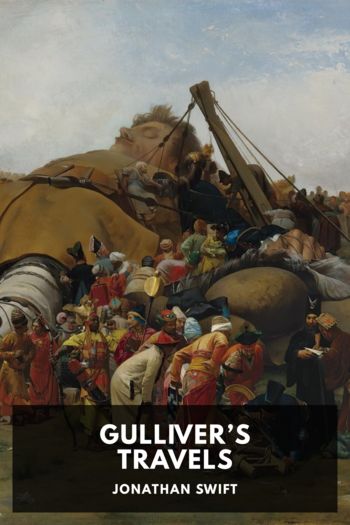The Assassins by Alan Bardos (best novels in english txt) 📗

- Author: Alan Bardos
Book online «The Assassins by Alan Bardos (best novels in english txt) 📗». Author Alan Bardos
Breitner couldn't believe it. 'Is that possible, Your Excellency?'
'I don't see why not. Franz Ferdinand's gone so there is nothing stopping it.'
Breitner bowed stoically. It was more than he could have possibly hoped for. Johnny coughed, attracting the Prime Minister's attention. 'Although I have serious reservations about your reliability, young man, what you have told me could be of some small service. If it proves as such you shall have your letter.'
‘The Austro-Hungarian Monarchy could also reward me for my services, financially, if that is more convenient,’ Johnny smiled.
Tisza glared at the impertinent youth and then left. He obviously found the whole transaction with Johnny repugnant, but Breitner assumed that he'd needed to gather every piece of information he could before confronting the Council of Joint Ministers, and if he could hear it directly from its source then so much the better.
Chapter 41
Breitner struggled to concentrate as the Council of Joint Ministers discussed the Balkan crisis. Officially, he was there to take Hungarian minutes for Count Tisza, so following convention, he had begun by recording the principal participants at the meeting, starting with Tisza himself, then Count von Berchtold, the Imperial Foreign Minister, Count Sturgkh the Austrian Prime Minister, General von Krobatin, the Minister of War and lastly the Minister in charge of Breitner's department, Count Leon von Bilinski, the Joint Finance Minister. Breitner had met generals and the heir to the throne, but these men were the real power in the Monarchy he loved so dearly.
After spending a year in the furthest corner of the Empire, his current situation was a bewildering turn of events for a rational and methodical man like Breitner. When he had started to investigate the Young Bosnians he hadn’t dreamt it would lead to him sitting in a state room at the Ballhausplatz, the administrative centre of the Austro-Hungarian Monarchy, with the men who would ultimately inform the Emperor's decision on whether or not to take his country to war.
Breitner gathered himself and tried not to think about the possibilities the future held; everything still depended on the outcome of this meeting. He began to record the report of Count Alexander Hoyos, a senior official from the Foreign Office. Hoyos had just returned from Berlin, where he'd been dispatched at the beginning of the assassination crisis, to determine German support for any punitive action the Monarchy chose to take against Serbia.
Hoyos was currently explaining that the Kaiser had been at the Kiel Regatta when the news from Sarajevo was delivered; he was reported to have said that the assassination had shaken him to the depths of his soul and that Franz Ferdinand had been one of his closest friends.
Hoyos had met with the German Chancellor, Bethmann Hollweg, and the Deputy Minister of Foreign Affairs, Alfred Zimmermann. They'd given him firm assurances of German support for any action the Monarchy chose to take against Serbia. 'They left it to the Monarchy's discretion as to what form that action should take,' Hoyos concluded, adding that Germany felt that they should act immediately, while there was still worldwide sympathy for the assassination of the Archduke.
'But what of the Russians, my dear Hoyos?' Berchtold, the elegant Imperial Foreign Minister, asked with effortless charm. Breitner could see why he was sometimes compared to a poodle by his political opponents.
'The view in Berlin is that the Russians will not interfere in what is largely a matter of honour,' Hoyos replied.
'I'm not so sure,' Berchtold said, addressing his comments to the assembled ministers. 'I believe it is very likely that Russia will intervene if we invade Serbia. Nonetheless, if we don't act now we are only delaying the inevitable. Russia is continuing to spread its influence amongst the South Slavs and building a Balkan alliance against us. Added to that, we have the growing problem of nationalism within our borders, undermining the cohesion of the Monarchy.
'The situation will only deteriorate if we don't make a timely settlement of accounts with Serbia. The South Slavs within the Monarchy will align themselves with the new revived Balkan states, in the face of the Monarchy's perceived decline.'
Breitner quickly wrote down what Berchtold had said, as his view was echoed and supported by the other council members. 'In short,' Berchtold summed up, 'now is the time to take decisive action against Serbia, while unconditional support from Germany is guaranteed. The only way we can stabilise the Empire and secure our southern border is to make a decisive show of force and dismember Serbia, absorbing her into the Monarchy and dividing what we don't need amongst her enemies. Thus, we will eliminate Serbia as a political factor, once and for all.'
'That is totally unacceptable,’ Tisza said, outraged by the suggestion. His objection, Breitner presumed, was that if any more angry South Slavs were brought into the Austro-Hungarian Monarchy they would cause more trouble and dilute the Magyar power base, undermining its control of the Hungarian half of the Monarchy.
'Is it your personal view that Serbia should be added into the Monarchy, Foreign Minister, and not necessarily a view supported by our German allies?'
Berchtold made no reply and Tisza continued. 'As I see it, there is no necessity for overwhelming or immediate action. War would not solve any of our problems. If we were to attack Serbia without any warning it would only undermine our standing and position in the world and start a war with Russia. The rational course of action is to present a list of demands to Serbia. If they agree to them we would win a major diplomatic victory, humiliating Serbia and





Comments (0)